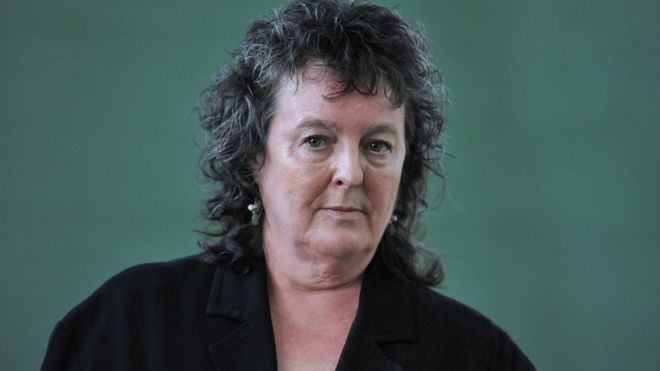10 Best Quotes and their Meanings by British Literaries
1. “”If I cannot inspire love, I will cause fear!”” – Frankenstein by Mary Shelley

Wikipedia
This famous quote comes from Frankenstein, Mary Shelley’s famous science-fiction horror novel, in which a mad scientist creates a conscious human-like creature reanimated from scavenged body parts. The words are spoken by the creature himself, as he swears revenge on his hated creator, who has given him life and just as quickly cast him out from society, condemning him to a life spent alone, without friendship or family.
The creature, realising that he cannot lead a normal life, threatens that he will instead spend his days terrorising all who encounter him unless his creator makes a female companion for him. The quote is one of the novel’s most famous, and often appears on its cover. It perfectly sums up the themes of the novel, its exploration of nature vs nurture, its investigation of the human condition, and the science of loneliness.
2. “It is a truth universally acknowledged, that a single man in possession of a good fortune, must be in want of a wife.” – Pride and Prejudice by Jane Austen
This quote by Jane Austen in her seminal novel Pride and Prejudice is arguably one of the most famous opening lines in history. Austen introduces the central conceit of the novel, which is its exploration of the society of the time, and the ways in which marriage and wealth drove much of people’s lives, especially those of young women.
The quote stands as a summary of the entire plot of the novel, which follows the Bennet sisters as they seek love, adventure and advantageous marriages in Regency England society. The quote also hints at the limitations both men and women experienced in this era, as men of means were expected to marry and produce children whether they wanted to or not, and women had limited options for their lives beyond marriage.
3. “Not all those who wander are lost.” – The Lord of the Rings by JRR Tolkein

Barnes and Noble
This short quote is one of Tolkein’s most famous, and its enduring popularity sees it featured on t-shirts, mugs, cushions, and anywhere else where one might hope to be inspired by it.
The quote is referring particularly to Aragorn, one of The Lord of the Rings series’ central characters. He has spent years roaming Middle Earth as a Ranger of the North under the name Strider. During this time he has travelled far and experienced many adventures, but is not living up to his true destiny or settling down in his life as other men have done. Aragorn is a classic example of the quote’s meaning – someone who is travelling not necessarily to reach a destination, but to find out more about themselves and who they really are.
4. “”It’s no use going back to yesterday, because I was a different person then.””– Alice in Wonderland by Lewis Carroll
These famous words, spoken by the eponymous Alice of Lewis Carrol’s classic novel Alice in Wonderland, have served as inspiration for generations of readers. Like many quotes from Carroll, it is a cryptic metaphor which contains deeper layers of meaning the more you look into it.
Alice tells us that she has changed a great deal since the day before, effectively summing up the nature of how we change as humans. We grow and develop on a day to day basis, sometimes in ways too small to comprehend, and sometimes in very big and noticeable ways. The point of the quotation is that nothing stays the same, either inside us or outside, and we should avoid dwelling on the past or even yesterday, as it was an entirely different time.
5. “All children have to be deceived if they are to grow up without trauma.” – Never Let Me Go by Kazuo Ishiguro

BBC
In this quote, Kazuo Ishiguro sums up a large part of one of his most famous novels, Never Let Me Go. He is speaking with regards to Hailsham, a boarding school within the novel where cloned children grow up and learn about the world. The tragic twist is that the children at this school will never live to experience the world, as they are destined to be sacrificed as organ donors shortly after reaching adulthood.
The deception Ishiguro speaks of is thus the idea the school puts forward that the children will enter society as free adults, when in fact they will not. They are deceived in order to grow up without the trauma of knowing they will die young. The quote sums up the tragedy of the situation, but also the kindness that those caring for the children attempt to give them.
6. Pride helps; and pride is not a bad thing when it only urges us to hide our hurts— not to hurt others.”― Middlemarch by George Eliot
Author George Eliot, whose real name was Mary Ann Evans, achieved lasting international fame for her classic novel Middlemarch, which follows two middle class people who enter into unfulfilling marriages which don’t allow for their personal growth. This quote is just one of many in which Eliot uses the word “we” to encompass both those in the novel and the reader in one universal statement.
The quote is reassuring in the fact that it acknowledges that everyone experiences some form of dissatisfaction on a daily basis, and that we are similar in the fact that we hide it from others when we are dissatisfied or hurt. It is a comforting thought to know that you are not alone when experiencing such feelings.
7. “I like to use simple words, but in a complicated way.”― Carol Ann Duffy

BBC
The not insignificant amount of work by Carol Ann Duffy can be effectively summarised in her personal quote, in which she outlines that she prefers simplicity of language, but as part of a more complicated structure or narrative. This philosophy is one which quite well describes the Poet Laureate’s body of work. She is known for giving a voice to those who have been silenced, for reading between the lines of mundane, everyday situations to find something fantastical, and for communicating complex ideas in an unpretentious and accessible way.
Duffy achieved international fame with her colloquial style which was easy to follow, either for the experienced poetry reader or for those who were entirely new to it. Thanks to this, to this day she remains one of Britain’s most popular living poets.
8. “After nourishment, shelter and companionship, stories are the thing we need most in the world.”― Philip Pullman
Although it has been many years since the publication of his hit book series His Dark Materials, Philip Pullman is still enjoying a great deal of popularity as an author, due to the enduring appeal of his novels, the successful BBC TV adaptation of the His Dark Materials series, and the recent release of several prequel novels.
This quote directly from Pullman himself sums up the magic of novels and storytelling, and how vital they are to the human condition. So vital, in fact, that he considers them alongside the basic physical human needs of company, shelter and food and drink. Without stories, he believes, people would perish as surely as they would in a famine.
9. “”Life must not be spent always hoping, always waiting. Life is for living.”” – Kensuke’s Kingdom by Michael Morpurgo

Wikimedia Commons
Kensuke’s Kingdom is one of Michael Morpurgo’s most famous novels. The Kensuke of the title is an elderly Japanese man, discovered living a basic existence on a deserted island by a fellow castaway, a young boy who was washed overboard from his parents’ yacht. Over time, the boy discovers that Kensuke considers the island his own private kingdom, having survived working as a medic during World War Two and washing up on the island after escaping from his bombed ship.
The quote is a summary of Kensuke’s personal philosophy; instead of waiting and hoping for rescue from the island, he has settled there and made a life for himself, and such a good one, that he does not want to leave when help eventually arrives. It is a bittersweet ending, in that Kensuke never sees his son again, but a positive one in that he has decided to make the best of his time on the island.
10. “It is a far, far better thing that I do, than I have ever done; it is a far, far better rest that I go to than I have ever known.”― A Tale of Two Cities by Charles Dickens
Aside from the opening lines of the novel, these words are arguably some of the most famous in Charles Dickens’ A Tale of Two Cities. They are the implied final words of the novel’s protagonist, Sydney Carton, who has willingly sacrificed his life for the greater good.
Here he finds solace in the fact that his sacrifice, though it means the end of his life, may result in better days to come for others, and in doing so he has found a greater meaning for his existence as a whole. This has also been quoted in Star Trek and The Dark Knight Rises.
Planning a trip to Paris ? Get ready !
These are ���������Dz�’�����������-����������Բ� travel products that you may need for coming to Paris.
Bookstore
- The best travel book : Rick Steves – Paris 2023 –��
- Fodor’s Paris 2024 –��
Travel Gear
- Venture Pal Lightweight Backpack –��
- Samsonite Winfield 2 28″ Luggage –��
- Swig Savvy’s Stainless Steel Insulated Water Bottle –��
We sometimes read this list just to find out what new travel products people are buying.










